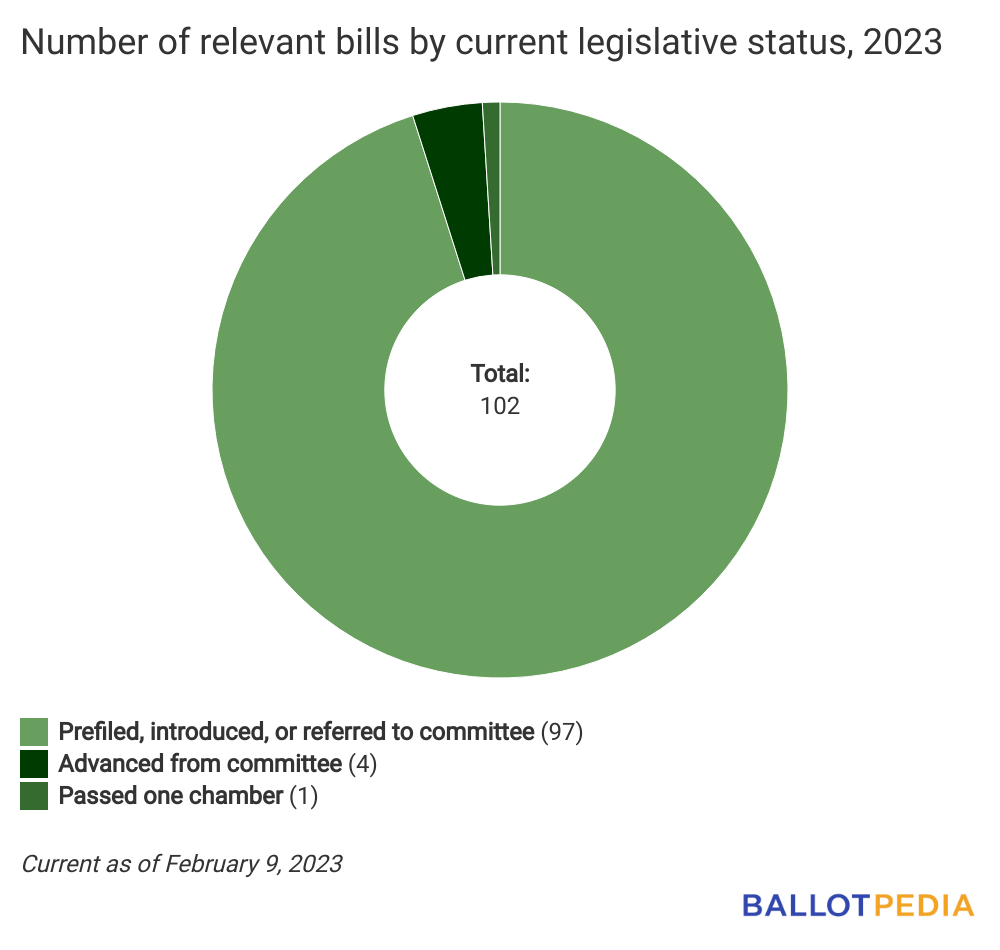Tag: Union Station
-
2023 rundown: Public-sector union legislation in the states
Welcome to the 2023 legislative session! Forty state legislatures are currently in regular session. Today, we’ll look at bills related to public-sector union policy that have been introduced so far this year. Overview We’re currently tracking 33 bills related to public-sector union policy in the states. Thirty-one of those bills have been introduced for the…
-
2022 recap: Public-sector union legislation in the states
Happy New Year! In today’s Union Station, we’ll review public-sector union legislation from 2022. Next week, we’ll look at bills filed so far for 2023. Highlights State legislators either introduced or carried over from earlier sessions 150 bills related to public-sector union policy in 2022. Thirteen relevant bills were enacted. Republicans sponsored three of those…


